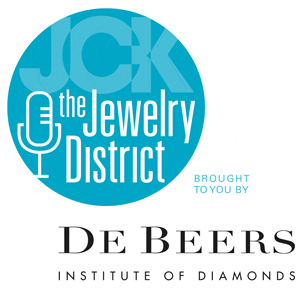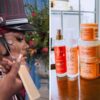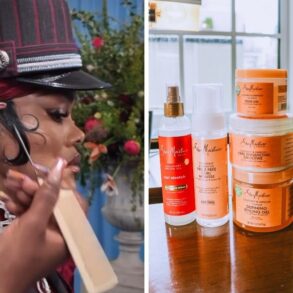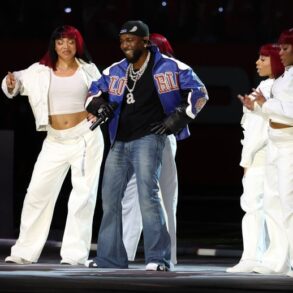
JCK editor-in-chief Victoria Gomelsky and news director Rob Bates dive into the hottest trends ahead, from more Barbie-fueled obsession with pink to nostalgic necklaces. (Think Rubik’s Cubes, robots, and all things ’80s.) Equally newsworthy is the luxury world’s laser focus on bigger, better brick-and-mortar—a high-end land grab that belies the digital-first future predicted during the pandemic. They discuss the recent sale of the International Gemological Institute, and how the world’s most elite watch brands are tuning in to hip-hop, electronic dance music, and both genres’ massive hype-building power.
Listen Now
Sponsored by De Beers: institute.debeers.com
Show Notes
01:41 Arbiters of cool in L.A.
05:40 Barbie, pink, and other fall trends
17:52 Brick-and-mortar is having a moment
22:28 What the IGI Sale Signals for Lab-Grown Diamonds’ Future
24:10 Luxury’s love affair with hip-hop and EDM
Episode Credits
Hosts: Rob Bates and Victoria Gomelsky
Producer and engineer: Natalie Chomet
Plugs: @jckmagazine; institute.debeers.com
Show Recap
Arbiters of cool in L.A.
Victoria recounts her recent visit to trendy L.A. gallery, fashion mecca, and fine jewelry boutique Just One Eye for a trunk show by Paris jewelry designer Sylvie Corbelin. “If you consider yourself in the know about where to shop in various cities, Just One Eye has to be on your list,” Victoria says.
Victoria found the collection by Corbelin—a former antiques dealer who creates large unique pieces incorporating vintage stones—poetic, magical, and right at home in this L.A. “It” store. She also discovered a fellow Corbelin fan and jewelry lover in actress Jennifer Tilly, who joined Victoria and others for dinner after the trunk show. “It was wonderful to hear her riff on the designers she collects,” Victoria says. Next on Jennifer’s must-have list: Taffin.
Think pink and other fall trends
Victoria and Rob join the Barbie bandwagon, trading opinions on the blockbuster film and speculating about its potential influence on jewelry trends. Victoria comments that pink was in vogue before Mattel’s most iconic doll hit the big screen: Contributor Annie Davidson Watson wrote a JCK piece about Barbiecore jewelry last summer and Pantone’s 2023 Color of the Year was Viva Magenta, a saturated version of Barbie’s trademark shade. But “pink’s got legs,” Victoria says, so “we’ll continue to see it this fall, winter, and next spring.”
She’s also seen a lot of racy reds on fall runways, suggesting that pink may segue into a darker, more mature red, she says.
“There’s a lot of disco cowgirl aesthetic coming in,” she adds. To wit: the silver Tiffany & Co. cowboy hat Beyoncé sported on tour this summer.
There’s an emphasis on dramatic, chunky collar-length necklaces, too, Victoria says. Longer than chokers, these chains or torque pieces sit at the collarbone and often feature a big pendant for drama. “If a retailer is betting on a fashion mix for fall, be sure to stock some of these,” she suggests.
Since moviemakers can obviously parlay beloved consumer products into movies, Rob wonders if iconic jewelry could do the same. Do certain brands or styles resonate enough to inspire a new Breakfast at Tiffany’s? It’s a timely question, given the plethora of jewelry inspired by nostalgia, playfulness, and nods to childhood—specifically a 1980s childhood. Good examples are designer Lauren Rubinski’s strings of enamel beads made to resemble Smarties candy necklaces, Tatiana Van Lancker’s robot pendants in 18k gold and precious stones, and Boucheron’s More Is More collection by Claire Choisne, which includes a deconstructed Rubik’s Cube in precious materials. “It’s a remarkable piece and a remarkable collection,” says Victoria. “I love it as a trend. It’s about seeking happiness where we can find it in a world that’s becoming ever more complicated.”
Countering Barbiecore and its maximalist approach to accessories is the stealth wealth trend, which emphasizes understated but ultraluxe pieces. Victoria sees this craving for quiet luxury reflected in growing interest in white metals, particularly as sculptural, architectural pieces that feel more modern and restrained than yellow gold. In the age of social media and celebrity dressing, it’s not uncommon to see competing trends like these two, she notes.
Brick-and-mortar is having a moment
Rob and Victoria delve into the spate of store openings among luxury retailers, including new NYC flagships from TAG Heuer and Panerai, and LVMH’s decision to remodel all Tiffany & Co. stores. Across the country, “malls are heaving with luxury clients and luxury stores,” Victoria says. In fact, so many high-end brands are expanding and upgrading that one source described it to her as a luxury land grab.
Rob adds that a lot of direct-to-consumer companies are following suit by opening brick-and-mortar stores. “The cost of customer acquisition are extremely high,” he says, and “stores are a good way to acquire customers and get your name out. It gives you a sense of legitimacy and permanence.”
It’s a fascinating twist, given that just three years ago all eyes were on digital. Now that the pandemic is behind us, the brick-and-mortar experience is more important than ever, Rob and Victoria conclude.
What the IGI lab sale means for the lab-grown market
Rob reports that IGI (International Gemological Institute), one of the industry’s biggest labs and a pioneer in certifying lab-grown diamonds, recently sold to investment management company Blackstone for a staggering $569.65 million. He chalks up the impressive price tag to timing: The pandemic years were great for lab-grown diamonds, and IGI has a leadership position in grading them, he says.
Luxury’s love affair with hip-hop and EDM
Victoria wraps up the podcast with another noteworthy trend: high-end watch brand tie-ins with hip-hop and electronic dance music (EDM). Audemars Piguet’s partnership with Jay-Z kicked it off almost 20 years ago, she says. Last year the Swiss watchmaker named superproducer Mark Ronson a brand ambassador.
“We used to think traditional watch brands and fine jewelers needed to partner with traditional musicians,” Victoria says. “If they were going to sponsor anything in the world of music, it had to be a symphony or a pianist or somebody who lived up to that refined, rarefied world that they wanted to be in. But so much of the luxury scene has moved to a younger generation that loves dance music and hip-hop and still has all kinds of money to drip in diamonds and fancy watches.”
While jewelers might find these collaborations—or “collabs”—surprising, brands realize that such partnerships can be a powerful way to build buzz with an affluent audience.
Follow JCK on Twitter: @jckmagazine
Follow JCK on Facebook: @jckmagazine
Follow JCK on Instagram: @jckmagazine
Follow JCK on Twitter: @jckmagazine
Follow JCK on Facebook: @jckmagazine
This post was originally published on this site be sure to check out more of their content.








